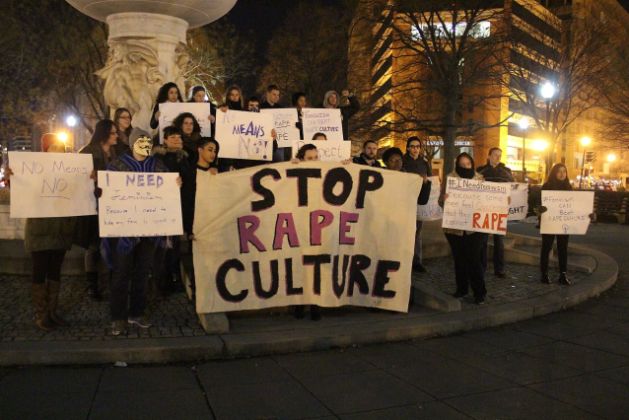
Photo (cc) 2016 via Wikimedia Commons
My Northeastern colleagues Laurel Leff and Meg Heckman report on a new, serious threat to freedom of the press on college campuses: a federal reinterpretation of Title IX that puts faculty members at risk if they advise students who are reporting on sexual assault. They write at The Conversation:
At issue are increasingly common policies that require virtually every university employee to alert school officials if they hear even the slightest rumor of sexual misconduct — on or off campus — involving students or employees.
On most campuses, clergy members, mental health counselors and health care providers are exempt from such mandatory reporting requirements. University-affiliated journalists are not despite the fact that they also often need confidentiality to do their jobs effectively.
Yet, journalism professors routinely learn of possible sexual misconduct in their roles as advisors to student newspapers, or in critiquing students’ classroom work. (It’s also increasingly common for journalism educators to serve as editors in charge of school-sponsored news organizations designed to fill gaps in the local media ecosystem.)
I heard about this for the first time last week. I immediately went through a mental checklist as I tried to remember whether any of my students was working on a story about sexual misconduct. They weren’t. But I’ve dealt with such stories in the past, and apparently I will not be dealing with them in the future.
This is an outrageous attack on the First Amendment. It even pertains to NPR affiliates associated with colleges and universities, which is to say most of them. What’s needed, as Leff and Heckman write, is a state law “exempting university-affiliated journalists and journalism educators from mandatory reporting requirements when they are advising student journalists.”
Talk about this post on Facebook.
Discover more from Media Nation
Subscribe to get the latest posts sent to your email.
